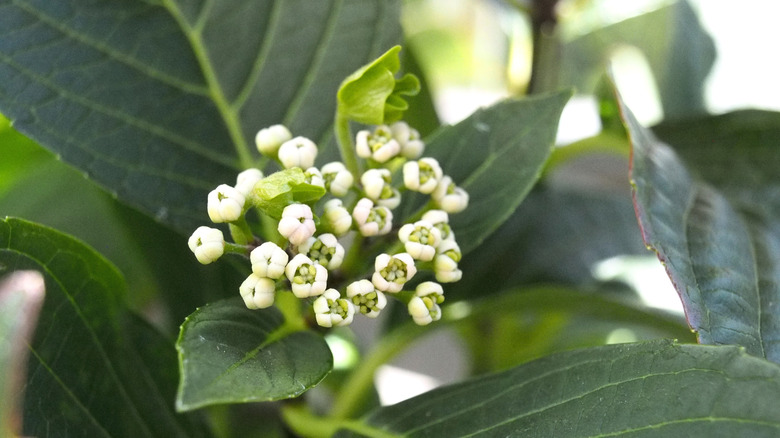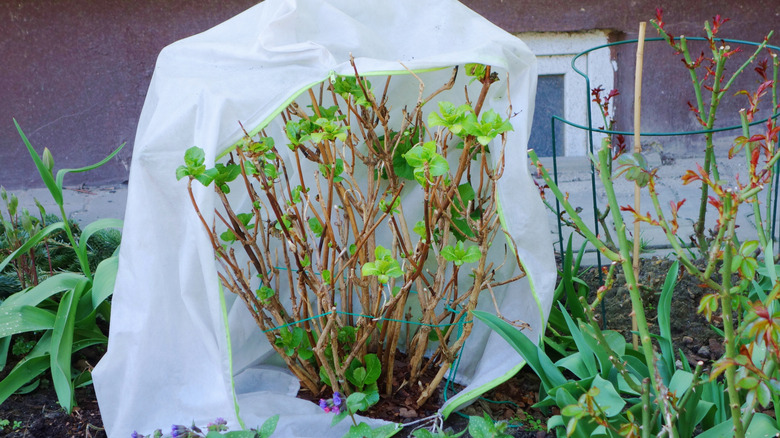The Real Reason Your Hydrangeas Aren't Blooming This Year
It's early spring and you're out shopping. You see the most beautiful hydrangea (Hydrangea macrophylla) plants on display, but, depending on your location, now may not be the best time to bring them home. In fact, if you live in a colder climate, you might want to think twice before planting hydrangeas in your garden since they're unlikely to bloom without special care. Hydrangeas thrive in USDA Hardiness Zones 6 through 11, and if you bring them home too early, the cold weather could zap their future blooms.
The hydrangeas you see blooming in the store were more than likely grown in greenhouses to meet their needs. Hydrangeas bloom on old wood, meaning they form their buds after blooming before the cold weather sets in. So, the buds need to be protected from the cold. Hydrangeas are often sold in stores as Easter flowers, but if you plant them somewhere too cold too early, they will droop and fail to bloom once summer rolls around.
Protecting your future blooms
With the right tools and soil composition, it does not have to be difficult to grow and take care of hydrangeas. Preparing your plants for winter is just a part of the process. You even have options for combatting the cold.
If you live in an area that experiences freezing temperatures, you can protect your hydrangeas during cooler weather with a simple mulching. A step further may include adding a barrier covering to protect your hydrangeas from the elements. This could be an added structure to block snow or a simple fabric cover to protect from frost. Potted hydrangeas should also be moved closer to your house to better insulate from large winds.
If you live in a colder climate, there are different hydrangea variations that may be more likely to bear the cold. Panicle hydrangeas (Hydrangea paniculata) and smooth hydrangeas (Hydrangea arborescens) are both known to withstand colder climates than Hydrangea macrophylla. These varieties begin to thrive in USDA Hardiness Zone 3 and continue through zones 8 and 9, respectively, so they will need less assistance through the winter months.

